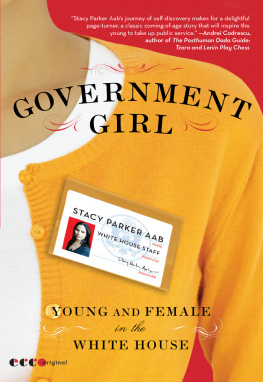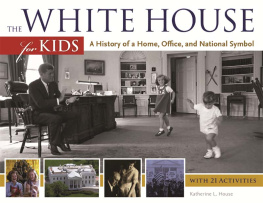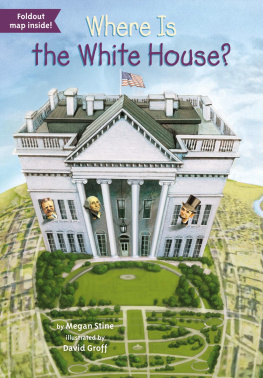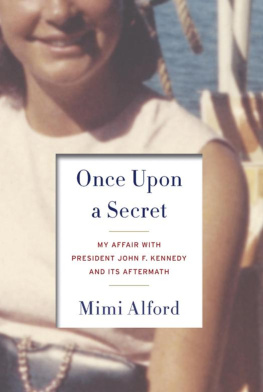Okinawa, Japan
2000
T HE DOOR TO THE PRESIDENTS SUITE STOOD STRAIGHT AHEAD and marked the end of my path. Few staffers had business being inside the presidents suite. I did. I was the presidential advance person in charge of the hotel.
The president had traveled to Okinawa, Japan, for the 2000 G8 summit. This was the last evening of the trip, and the president and staff were still out for dinner. Down the hallway I went, walking past the rooms of key staffers, each door posted with a paper sign bearing his or her name. Doug Band, the body aide. Sandy Berger, the national security advisor. Donnie Flynn, the deputy special agent in charge (DSAIC). We labeled doors so staffers could find one another easily, per presidential trip protocol.
The presidents door remained unmarked. An agent stood posted outside, the only visual anyone needed to know which room was his. The agent smiled as I approached.
I wanted to check the suite pantry. The hotel treated us superbly, so I had little doubt that all of the sodas and snacks had been refreshed. We stayed in a resort hotel, the ANA Manza, that rose up like a white ship on a slip of beach peninsula. Step outside, and you were surrounded by the healing beauty of blue waters, by the air blanched with light and heavy with moisture. Before this trip, I had known Okinawa as the site of the bloodiest battle in the World War II Pacific theater, the Japanese and American forces sustaining more casualties than the civilians in Hiroshima and Nagasaki combined. I had not known that they had slaughtered each other in paradise.
Before arrival, I worked with the hotel and the Secret Service to prepare the presidents suite. I arranged for and assigned staff rooms, making sure that every person who deplaned Air Force One, and each support plane, had the right place to sleepno easy feat, given shifting manifests and sold-out hotels. Other advance people had finite assignments. They finished their events, and they would be downdone for the day and not expected to be at anyones immediate beck and call. Not me. As the hotel advance person, known as the RON, for remain overnightshorthand for the advance person in charge for wherever the president spent the nightI was always on, from the minute the president and his staff arrived till the minute they were wheels up on Air Force One. RONs worked long hours, but I was proud to be part of a small group of advance people considered qualified for the task.
The posted agent let me into the suite. Lamps were glowing, as were overhead lights. I could not see how dark it was outside, for each pair of curtains was closed. But the rooms felt bright, regardless, with their white walls and caramel wood accents. Windows lined the bayside and oceanside walls, and when the curtains were open, the water dazzled and the air swept through the dining room and sitting room in a perfect cross-breeze.
You must hate that theres balconies, I had said to my RON agent counterpart on our first walk-through.
If I have my way, he said, hell never know there are balconies.
I wondered if he was joking or if he planned to sew the curtains shut. We both knew that the president had reacted badly when the RON agent had done that on the South American trip a few years prior. It looks like a goddamned cave in here! he had reportedly howled. In minutes, the agents had unstitched the curtains. No one wanted to be yelled at by the president, but that was the risk we took when we negotiated the line between security and suffocation. Still, the president took his own risks when he resisted the agents measures: they kept curtains shut to keep possible snipers from getting a line of sight.
The agent and I walked out onto the balcony. Below lay the lagoon, where toddlers were wading with their young parents. From the dining room balcony the president could look out onto the sea itself. A Japanese navel vessel sat out there, fat and unmoving, securing the site. Waiting, watching.
Im closing these curtains, my counterpart said. With one strong motion, he shut out the sky, the water, and all of that light.
Youre not going to pin them shut now? I asked.
No, he said.
Thank you. You know he doesnt like that.
But later, when I inspected the suite before the presidents first arrival, I saw safety pins glinting in the sheers and I swore out loud. My agent counterpart had pinned the sheers shut. Pinned. Maybe he hadnt done hotel work for a while or his supervisor had told him to do it and he had had no choice, but we all knew that the president did not like to be so obviously closed in. The audacity, really, to pin shut the curtains of the president of the United States.
We would let the supervisors fight it out. I knew from experience that I would not be the one unpinning the curtains if the president roared. It would be the agent.
And it was. The pins came out as soon as the president arrived.
Now, two days later, I checked the refrigerator to see if anything needed restocking. The valet managed this now, but I kept tabs too. I was happy to find it full of Diet Coke, water, and plates of plastic-wrapped vegetables and crudits. Happy until I realized that I was hungry. Did I have time to run to my room before the president returned from his dinner? Yes.
The fruit basket Mr. Abe sent to my room every morning was there, filled with the most luscious fruit I had ever tasted. Mr. Abe was the Tokyo hotel manager entrusted with running the site during our stay. I was his advance staff link to the president, and he treated me well: the mangoes oozed juice at a mere touch. If I were still White House staff, Id have to worry about violating ethics rules by accepting a gift that might exceed the $20 gift allowance, given how much the hotel might charge for such a basket. But I was ex-staff. A volunteer, from the trusted pool of people the White House asked to do occasional advance work. I could eat the mangoes.
I rushed downstairs and ate the fruit on my balcony, careful to keep the juice off my suit. The president was due back soon. I kept the radio bud planted in my ear, listening for his departure from the dinner site. I could see the Japanese vessel, large and imposing on the waterline. Later, I would arrange for Mr. Abes senior executives to be photographed with the president. He would tell me that this honor was so appreciated that one of the executives invited him for golfa major gesture in their corporate culture. Mr. Abes happiness over this reward would become one of my favorite advance trip memories. People loved this president so much, and we did what we could to facilitate these moments of connection.
Eagle, depart. Eagle, depart.
Arrival pending! These were my moments of excitement, every time the president arrived or departed my site. I rushed to the lobby to wait near the foot of the red carpet, the only staffer expectedand allowedto wait near the presidents entrance point into the hotel. The bellman would run the vacuum quickly over the carpet, to make it fresh. I could step on it first if I wanted to, in those delicious moments we anticipated his arrival, but I never did. The first shoe indents should be his.
People stopped. They watched this young woman of such a mixed race that she could have been almost anything (Indian? Native American? Louisiana Creole?), with dark hair just past her shoulders, in a soft pink skirt, holding a clipboard and carrying a black bag over her shoulder. Look at that earpiece. She must be with him. At times, I knew people assumed I was Secret Service, and if I told them to move, they would. But sometimes I wondered if their imaginations wandered when they saw my youth and my femaleness. Does he hit on her, too? We were only a year and a half past impeachment and the failed Senate conviction. The president had survived, even enjoyed sky-high approval ratings that last summer of his term. But Monica was never far from our collective mind.










